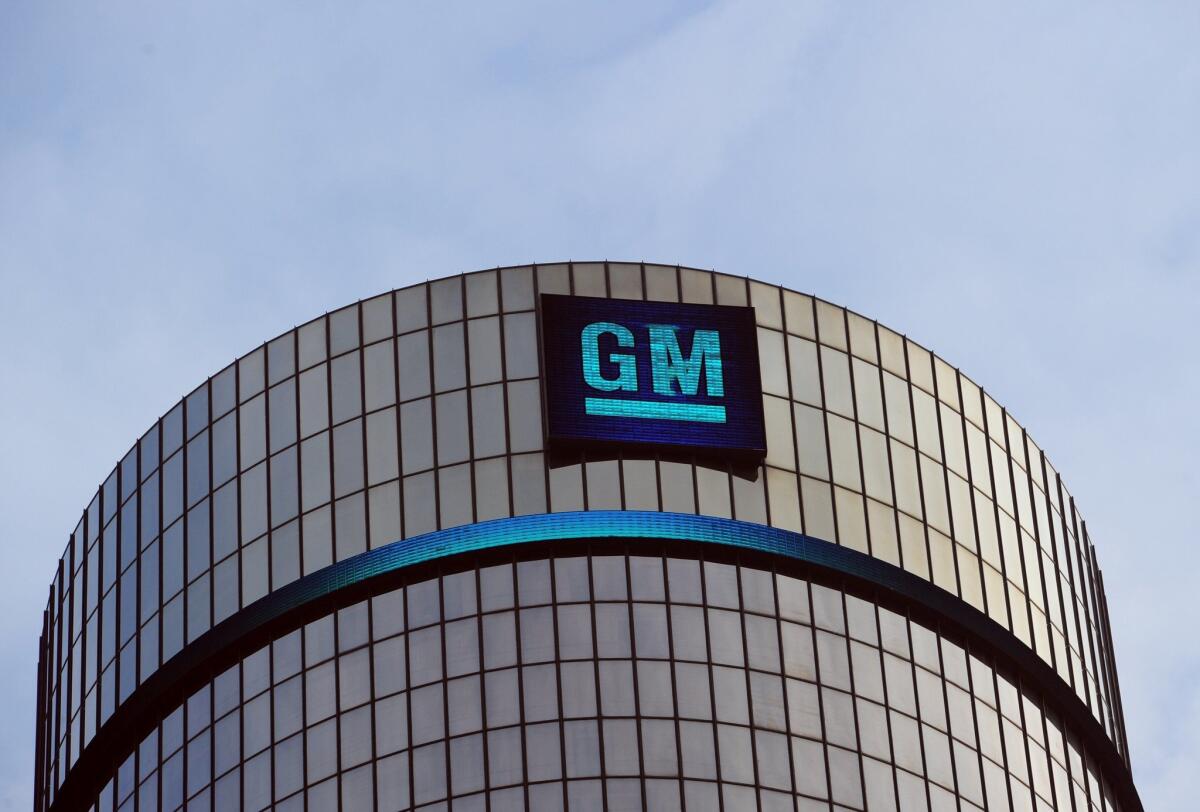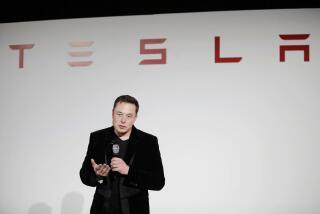GM plans $5-billion stock buyback, avoids showdown with hedge funds

General Motors announced a $5-billion stock buyback as part of a plan to return more cash to investors. In return, an activist shareholder decided to drop a potentially divisive bid for a seat on the company’s board.
The moves are part of a deal with Harry Wilson, a former member of the government task force that restructured GM coming out of its 2009 bankruptcy.
Wilson, who represents four hedge funds that own about 2% of the company, had previously accused GM of hoarding cash to the detriment of shareholders and had sought an $8-billion buyback and a board seat.
But on Monday he said he was impressed at how quickly GM’s management responded, adding that the company agreed to just about everything the funds wanted.
“We basically said thank you,” Wilson said.
GM had $25.2 billion in cash at the end of last year, part of what it called a “fortress balance sheet” designed to withstand another financial crisis. Going forward the automaker plans to maintain a cash balance of $20 billion and aims to keep its investment-grade credit rating.
The share repurchase will begin immediately and finish before the end of 2016. Investors liked the announcement. GM shares rose $1.12, or 3.1%, to $37.66.
Talks with Wilson’s group had been going on for about two weeks, GM CEO Mary Barra said Monday. She said other major shareholders agreed with the buyback.
She indicated that the buyback might have come without Wilson’s prodding. “We were on a path to do this anyway,” Barra said.
GM recently announced plans to boost its quarterly dividend by 20% to 36 cents. Combined, the dividend increase and the buyback will cost GM $10 billion by the end of 2016.
Chief Financial Officer Chuck Stevens said a $20-billion cash reserve is enough for GM to withstand any potential economic downturn, as well as the costs of an ignition switch recall.
The Justice Department is investigating the company for failing to disclose a deadly problem with ignition switches in its small cars to government safety regulators. That penalty could be as much as or more than the $1.2 billion that Toyota paid in a similar case. The switches are responsible for at least 64 deaths, and GM has committed to making payments to those injured and families of those killed. The company has set aside $400 million for the payments but says they could go as high as $600 million.
More to Read
Inside the business of entertainment
The Wide Shot brings you news, analysis and insights on everything from streaming wars to production — and what it all means for the future.
You may occasionally receive promotional content from the Los Angeles Times.










